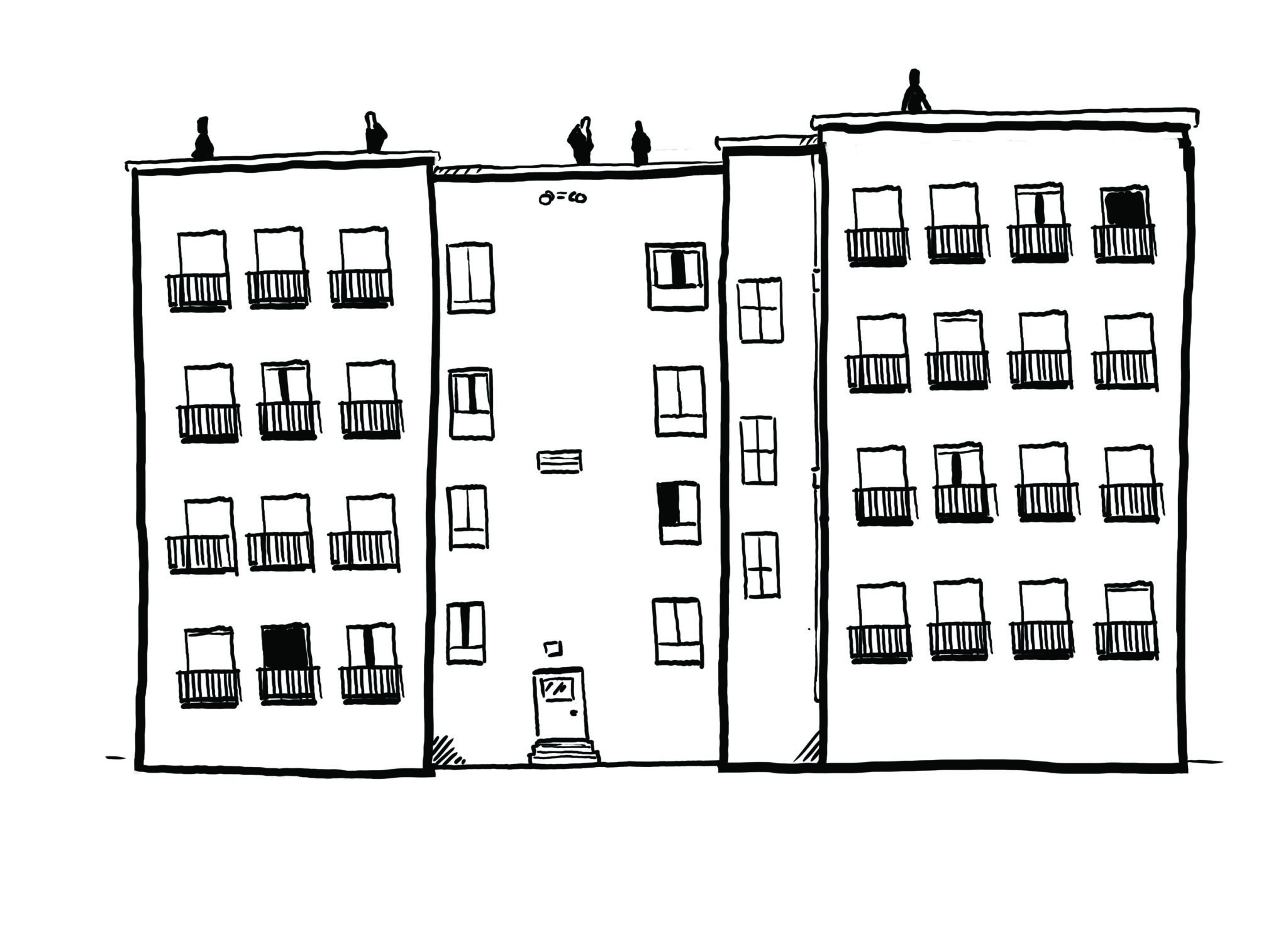
When you flee a war-torn country, it is not pretty.
There is nothing Hollywood about the refugee crisis nor its aftermaths, which is why “Dheepan” was so good — until the last 20 minutes.
The French crime drama features Dheepan, a Sri Lankan Tamil warrior who flees to France as a refugee with a pretend wife and daughter. The film follows not only the makeshift family’s struggles to assimilate into society but also their entanglement with Parisian street violence. The main actors do not have extensive resumes, which adds to “Dheepan’s” greatest — and failing — characteristic: the realism.
Our small cast of characters are not easily likeable. Yalini, the “wife,” could be described as selfish and scheming, since she cares little for the well-being of Illayaal, her “daughter,” or for Dheepan, her “husband,” as long as she can find her own safety. Dheepan, despite caring for his pretend family, is addicted to the violence and excitement of street crime reminiscent of his battles in Sri Lanka. His predilection for this dangerous lifestyle puts Yalini and Illayaal in danger. However, these complicated characters are real and more genuine than any one-dimensional caring wife or dutiful husband that another more whitewashed movie about refugees may create.
Even the relationship between Dheepan and Yalini initially has the right amount of grit for a man and a woman who are basically just using each other for safety in France. When Yalini takes Dheepan’s hand after they moodily stare out the window together, there seems to be some hint of burgeoning emotional attachment, yet we know that as she undresses, they are mostly only satisfying physical lust.
“I’m not your wife,” Yalini states firmly after Dheepan accuses her for heartlessly leaving.
Dheepan also demonstrates his use of Yalini for sex when he too easily apologizes after a large fight and immediately begins to kiss her neck. Their relationship was never a truly romantic love story.
However, “Dheepan” destroys its credibility by concluding with a scene in which Dheepan and Yalini are happily married with a child of their own. The ending shot undermines the entire film that preceded it. It abruptly transitions from an action sequence of Paris street violence to an epilogue scene of a seemingly peaceful, happy suburb where the lighting casts a golden glow on our pretend family that has suddenly become genuinely intimate.
This sudden rose-colored artificiality contrasts with the initial realism of the film’s plot points. Illayaal is rejected by her schoolmates after repeatedly asking to play with them, and Dheepan finds it difficult to connect with his neighbors and laugh at their jokes — even though he understands French.
“I understand all the words, but they don’t sound funny,” Dheepan explains to Yalini. In this way, the film explores not only the violence that refugees must face but also the language barriers and schoolyard hierarchies that underline the quieter anxieties enmeshed in the immigrant experience.
Again, it’s the last 20 minutes that reduce the film and completely waste its potential. Suddenly, Dheepan is pulling action-hero stunts like purposely igniting the back seat of a stolen car to stage his own demise as he secretly escapes the car and his pursuers to save Yalini. The thoughtfulness evident in the slow, lyric realism of the main portions of the movie dissipates. We are now supposed to be wowed by Dheepan’s Hollywood heroism, which heavily detracts from the film’s original purpose of revealing the complex tensions and terrors of immigrants’ and refugees’ lives.
The film fails to connect the tense, unidealized conflicts of interest and immigrant struggle to the action sequence in which Dheepan rescues the bloody Yalini and they finally live in a peaceful neighborhood as an in-love couple.
I hate to discredit the rest of the film, because it captures so much of the cultural and sociopolitical struggles that refugees and immigrants at large must face on a daily basis. The film is taut and engaging for a significant portion of its run. It even has an 88 percent approval rating on Rotten Tomatoes. If we ignored the last 20 minutes, “Dheepan” would undeniably deserve that level of praise.
But we cannot ignore those last 20 minutes because the ending of a film defines what viewers should walk away with. “Dheepan” merely tries for a fix-all happy ending for no particular reason. It isn’t realistic, nor is it believable.
It’s just cheap.
Allison Chen | allison.chen@yale.edu .







